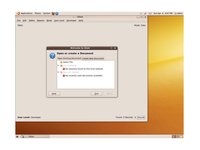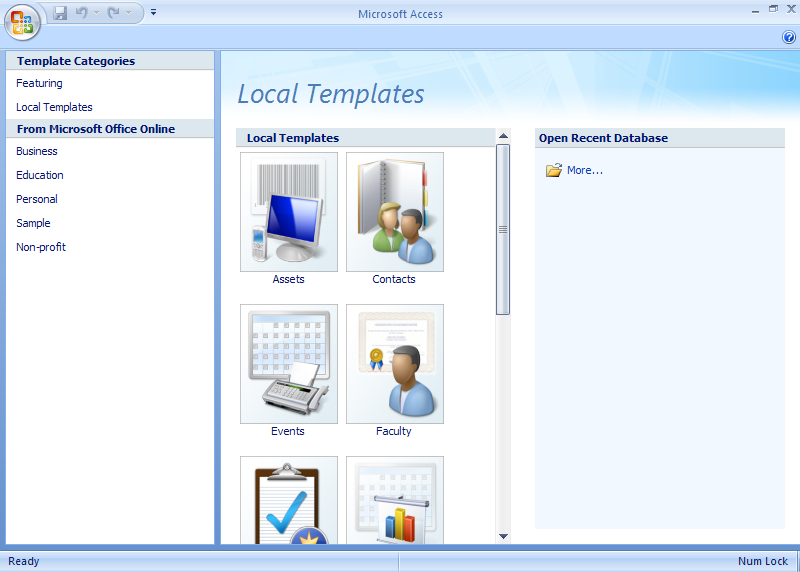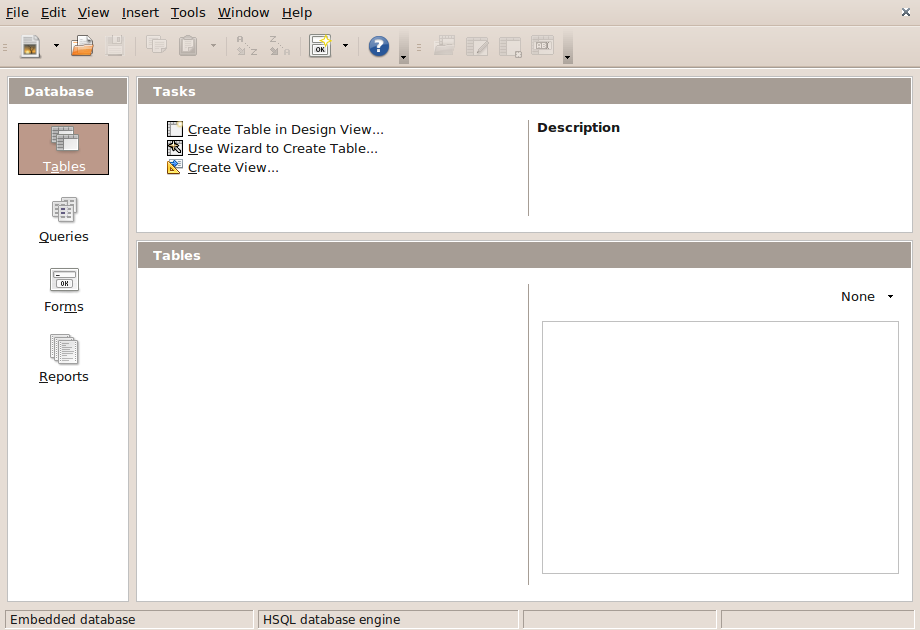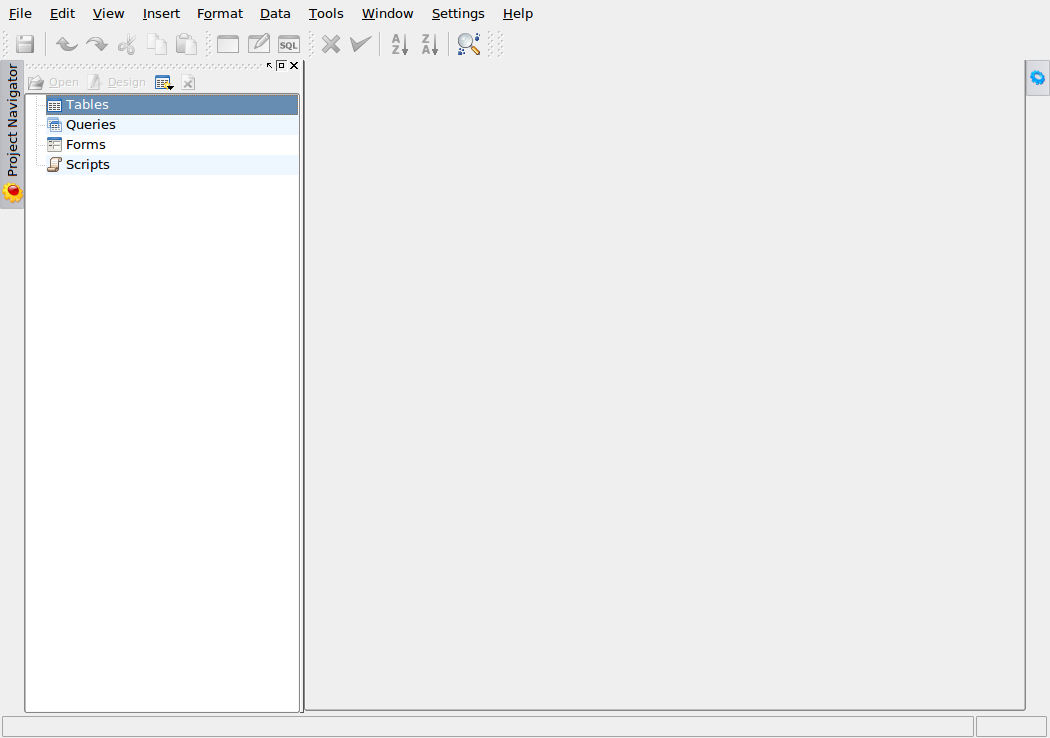Tom's Definitive Linux Software Roundup: Office Applications
Having covered Linux installation, running Windows XP in Ubuntu, Internet applications, and a handful of open source communications titles, Adam Overa is back with a comprehensive look at office apps for Windows users considering a switch to Linux.
Database
First off, I am not a database user. The last time I used a database application was in an Intro to MS Access 2000 in college. Before that, there was another brief intro to MS Access 97 in High School. Also, MS Access isn't the industry-dominating title that Excel is. So, we won't be looking for Access replacements here. Besides, professional database administrators have ways to convert data to-and-from all kinds of different databases, and most certainly won't be reading this article for tips. What we want is a simple front-end. A nice graphical way for the rest of us to construct, organize, enter, and sort information. In that respect, we're comparing these apps to Access, something similarly clean, user-friendly, and scalable.
OO.o Base (v.3.1.1 build 9420)
OO.o Base is actually much more familiar to me, coming from Access 2000, than Microsoft's current (and upcoming) version of the app. Base boasts seamless integration with the OpenOffice.org spreadsheet application, Calc.
Like the rest of OpenOffice.org, Base saves database files in the open document format (.odb, in this case). However, Base cannot open or save MS Access files. Due to my previously-stated inexperience with, and limited use for database applications, this was a tough call to make. In the end, I believe the OO.o app to be more user-friendly than Kexi because of the wizards that are available at seemingly every turn in Base.
Bottom line: if you have never used a database application before, OpenOffice.org Base is really the only good option in the list. If you have used MS Access in the past (pre-2007), both Base and Kexi will be familiar to you, but Base is the one we recommend to a total novice.
Kexi (v.1.1.3)
“Microsoft Access for Linux." Well, that's what Kexi's homepage proudly displays, anyway. The interface in Kexi looks to be slightly dated and even cluttered compared to OO.o Base. But the basic database creation tools, such as table, queries, and forms, are easily located and recognizable in Kexi's left sidebar.
Get Tom's Hardware's best news and in-depth reviews, straight to your inbox.
Kexi saves database files in its own .kexi extension, but has support for several Microsoft Access file extensions. So, if compatibility with MS Access is important to you, then Kexi might be the Linux database app for you.
While most KDE apps fair better both aesthetically and in terms of the app's general responsiveness when they're run in a native KDE environment, Kexi won't. This brings us to another reason we placed Base solidly above Kexi--the fact that Kexi is not made for the latest version of KDE. Upcoming Kexi 2.0 is built for the current KDE 4.x, while the latest stable version that we looked at was made for the now-legacy KDE 3.5. This makes Kexi look like a fish out of water, even within KDE. Needless to say, Kexi doesn't look any better under GNOME, the other major Linux GUI.
Glom (v.1.12.2)
Glom proved to be the most frustrating out of the three database apps. There are no discernible wizards, at least none that pop up convieniently to prompt the user through the database creation process. Another not-so-hot aspect of Glom is that, when the app first launches, it attempts to find existing Glom databases, both locally and over your network. Obviously, when you are using Glom for the very first time, there will be no existing Glom databases. This fact is reflected by red error logos instead of empty directory trees.


Red error signs compounded by a lack of wizards and pre-installed templates make Glom unapproachable, and even a little overwhelming for those users looking to quickly create a searchable catalog for personal use.
Unless you already have a familiarity with creating databases or a real need to create a completely custom catalog from the ground-up, consider going with Kexi or Base over Glom.
-
ksa-_-jed And don't bother looking for any anti-virus becuase you don't need it or cracks for your software becuase almost all app are free !!!!!!!Reply -
DjEaZy ... for my laptop @ work the only licensed thing are win7hp and KAV... all other apps are free... infrerecorder, inkskape, OOo and so on...Reply -
bloody llama Open Office and the other open source software are great for what they are, but try replacing Access 2007 or 2010 with something open source, and you'll be tearing your hair out.Reply -
jsowoc I assume that OO 3.0.1 is what you have in the repositories - was that the reason for testing the older version (version 3.2 came out two months ago)?Reply -
JonathanDeane bloody llamaOpen Office and the other open source software are great for what they are, but try replacing Access 2007 or 2010 with something open source, and you'll be tearing your hair out.Reply
This is very true, I love Open Office and for my home use it does 100% of what I would use MS Office for, that being said if I had to run a business on it I am afraid it would be worth it to pony up the dough for an MS product. -
ejmarkow Tom's Hardware omitted the best performing, most comprehensive, free and Open Source Accounting ERP software available for download. It's called "xTuple ERP PostBooks Edition" and utilizes PostgreSQL. This software is capable of running anything from a small to large business. Link: http://www.xtuple.orgReply -
killerclick We installed Linux and OOo into one of our offices (sort of an experiment to cut costs) and it was a riot. Not that Linux and OOo are bad, it's just that the power of habit is too strong to break when Windows and Linux are concerned. Windows and OS/X... not so much apparently.Reply -
Open Source is the future. ...... companies that profit millions or billions off of proprietary software. They are what hold us back.Reply
-
randomizer killerclickWindows and OS/X... not so much apparently.Well it's not like Office on Windows and Mac are vastly different, I'd hope that users would feel comfortable using the exact same software...Reply
I must attest to the uselessness of OOo Calc though. It needs a ground-up rewrite. It's slow to load and process even a small to moderately sized amount of data and charts are slow to redraw when altered. I have not tested GNUMeric enough to comment on that but it's supposedly alot faster.
I'm interested in looking at those project management programs. There's also OpenProj to add to the list. -
haplo602 hmm ... not my area of software, I try to avoid office apps as much as I can, but last time I worked in Writer/Calc it was slow and unresponsive. The best thing in Writer was the TeX like equation editor, way better than what MS had to offer. I think they made some progress on OOo since that time, so I'd have to test.Reply





















